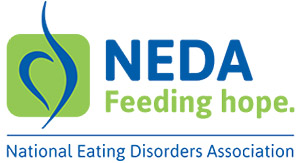Eating Disorders
 Recovery from an eating disorder can be a lengthy process and one that often requires a team approach, patience, and a strong system of support.
Recovery from an eating disorder can be a lengthy process and one that often requires a team approach, patience, and a strong system of support.
Eating disorders typically seen in my practice include: anorexia, bulimia, binge eating, and compulsive overeating, as well as post-bariatric patients.
Although often described as a “teen issue” eating disorders are becoming more prevalent in young girls under the age of ten, and in women at, and beyond midlife.
 Eating disorders are a biopsychosocial disorder which means a variety of contributors are present from genetic vulnerabilities, environment, early development, social experiences, and intergenerational attitudes about weight, appearance, body image, food, and media exposure.
Eating disorders are a biopsychosocial disorder which means a variety of contributors are present from genetic vulnerabilities, environment, early development, social experiences, and intergenerational attitudes about weight, appearance, body image, food, and media exposure.
So, how do I know if I, or someone I know has an eating disorder?
Here are some warning signs, followed by a link to a screening tool, as early detection increases recovery.
Warning Signs
- An obvious increase or decrease in weight not related to a medical condition.
- Abnormal eating habits, such as severe dieting, ritualized mealtime behaviors, fear of getting “fat”, secretive bingeing, or lying about food.
- An intense preoccupation with weight and body image.
- Mood swings, depression and or irritability.
- Compulsive or excessive exercising, especially without adequate nutritional intake, or when injured.
https://www.nationaleatingdisorders.org/screening-tool
![]() You may reach the Eating Disorder Helpline at (800) 931-2237
You may reach the Eating Disorder Helpline at (800) 931-2237
Please contact me if you have further questions or concerns, are seeking resources, or would like information.


